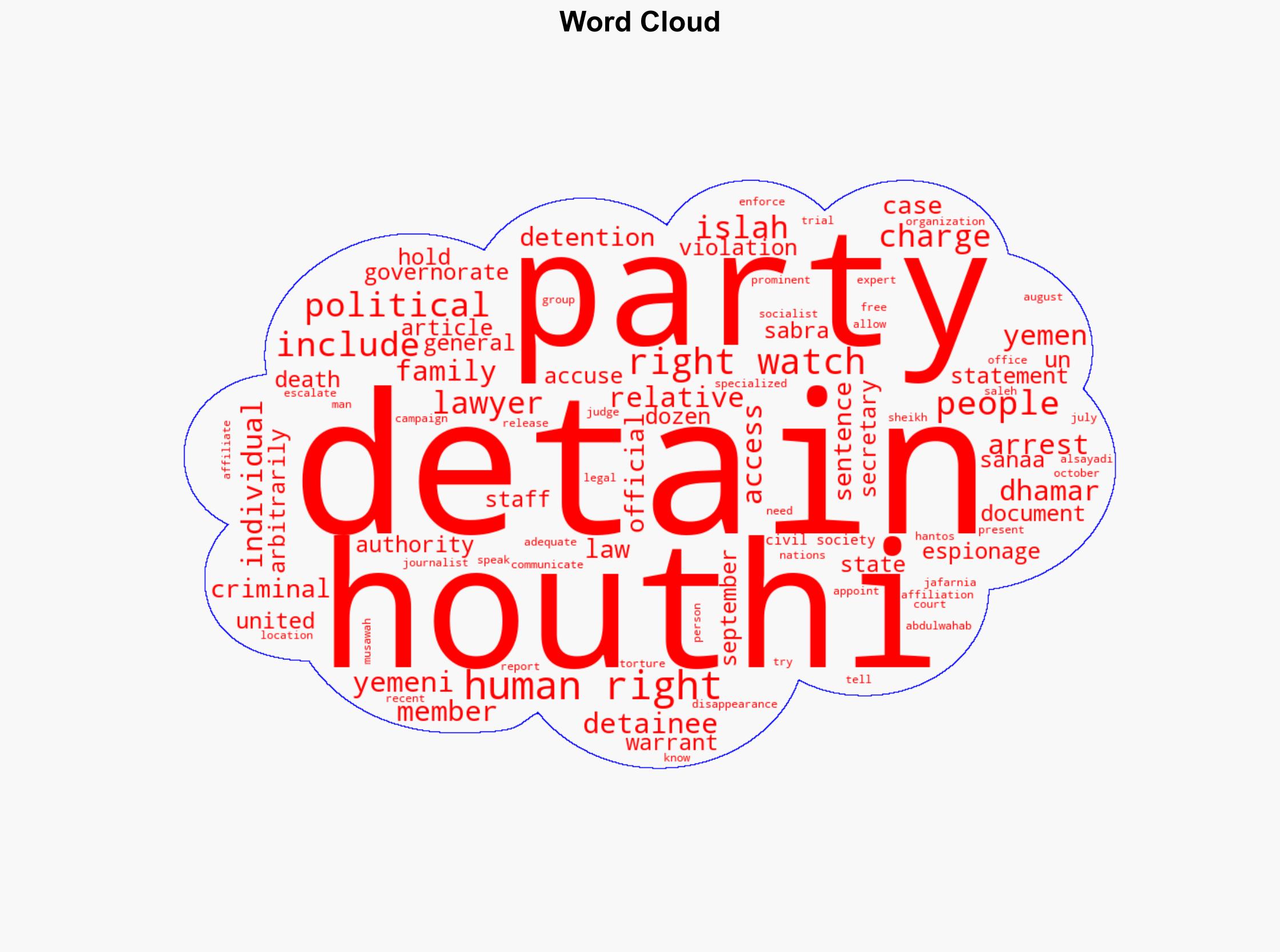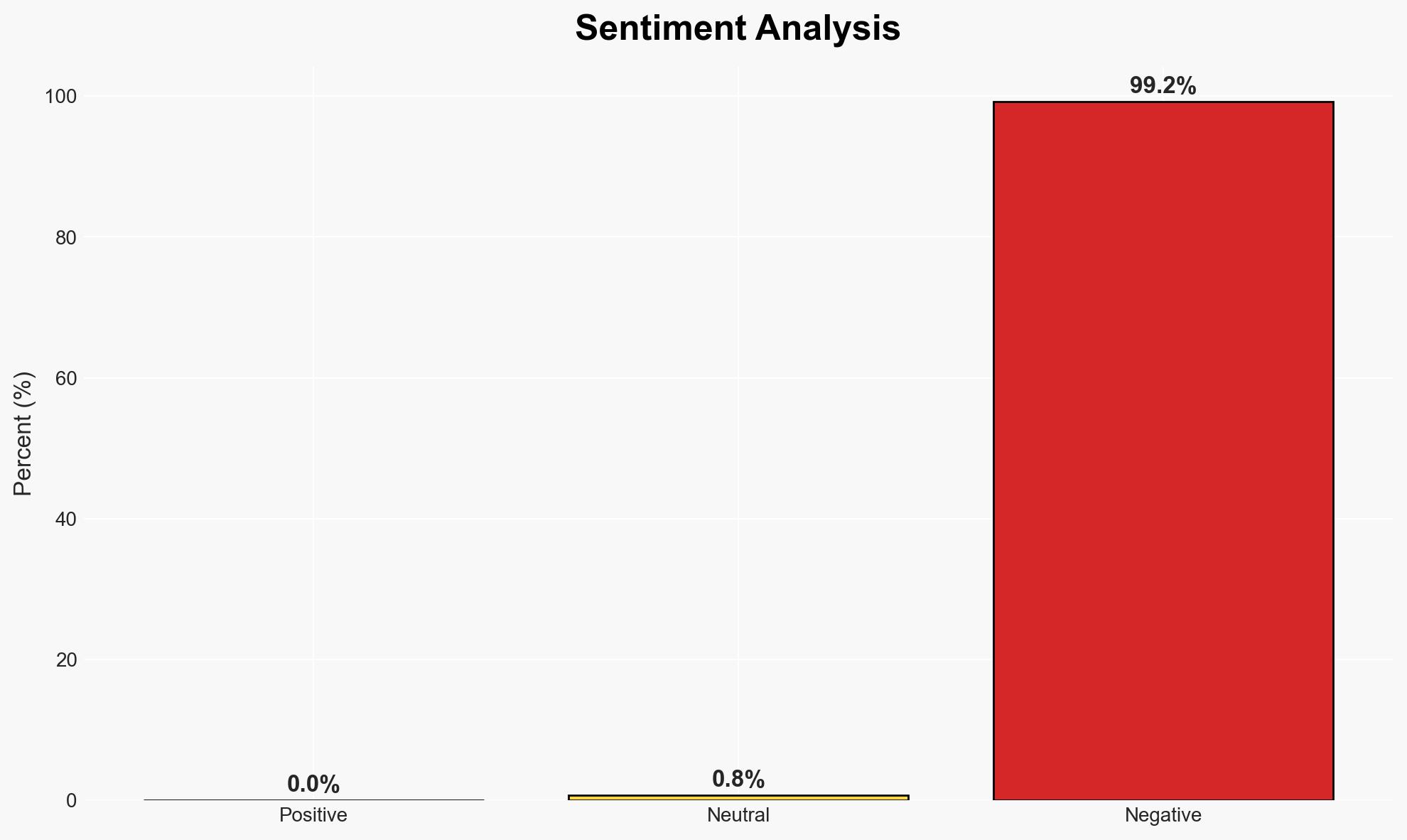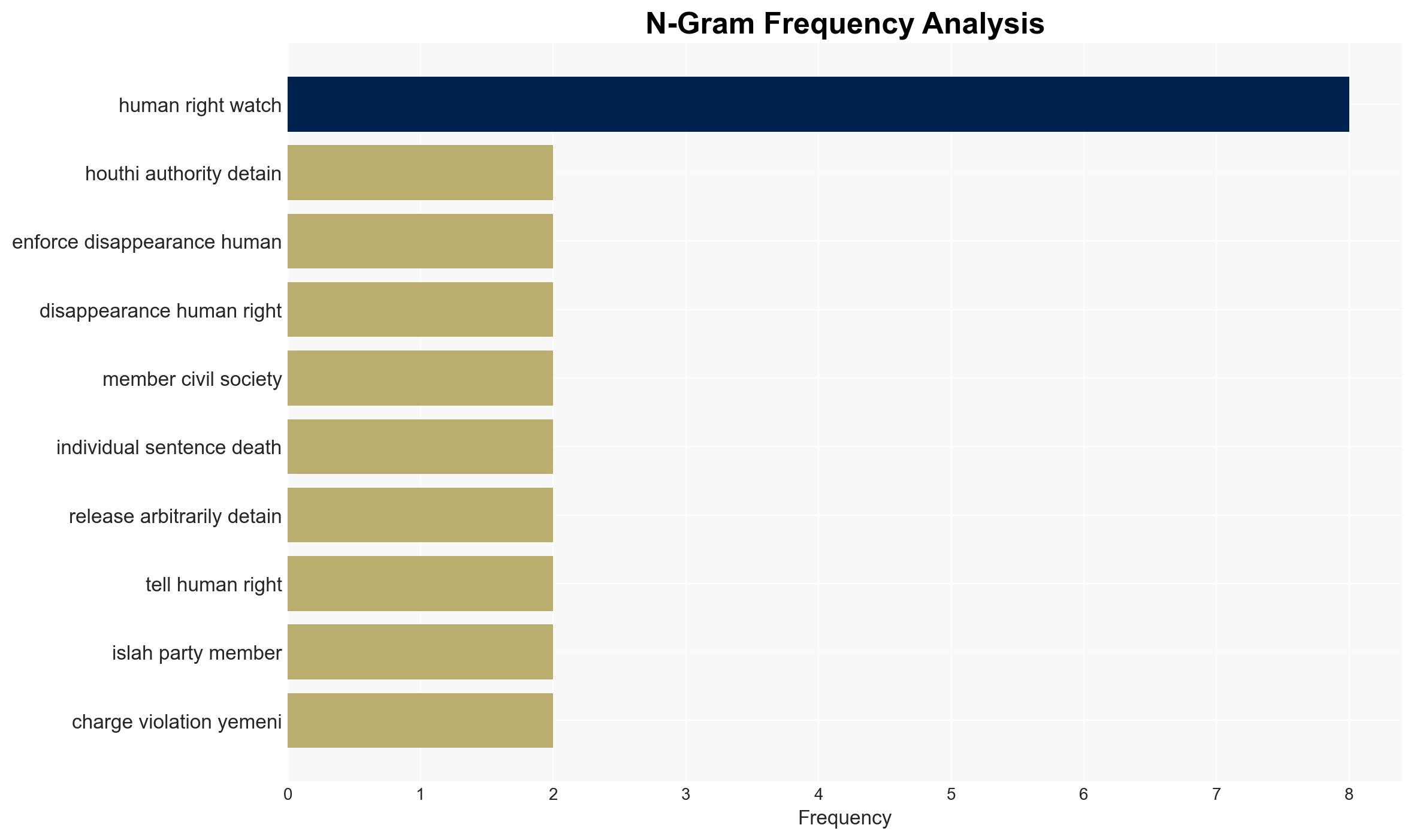Houthis Intensify Crackdown on Political Opponents Amid Rising Human Rights Concerns in Yemen
Published on: 2025-11-27
AI-powered OSINT brief from verified open sources. Automated NLP signal extraction with human verification. See our Methodology and Why WorldWideWatchers.
Intelligence Report: Yemen Houthis Widespread Detentions of Political Opponents
1. BLUF (Bottom Line Up Front)
The Houthi authorities in Yemen have intensified their campaign of detaining political opponents, including members of the Islah party and other political entities, under accusations of espionage and other charges. This development is likely to exacerbate political tensions and undermine human rights in Houthi-controlled areas. Overall confidence in this assessment is moderate due to limited access to independent verification.
2. Competing Hypotheses
- Hypothesis A: The Houthis are conducting these detentions primarily as a means of consolidating power and suppressing dissent. This is supported by the pattern of targeting political opponents and the lack of due process. However, the full extent of internal Houthi motivations remains uncertain.
- Hypothesis B: The detentions are a response to genuine security threats perceived by the Houthi leadership, possibly linked to espionage activities. This is contradicted by the lack of transparent legal proceedings and the historical pattern of politically motivated arrests.
- Assessment: Hypothesis A is currently better supported due to the consistent targeting of political figures and the absence of credible evidence supporting espionage claims. Indicators such as increased international pressure or internal dissent could shift this judgment.
3. Key Assumptions and Red Flags
- Assumptions: The Houthis prioritize political control over legal norms; detainees are primarily political opponents; international responses will remain limited.
- Information Gaps: Detailed evidence of the charges against detainees; independent verification of detention conditions; internal Houthi decision-making processes.
- Bias & Deception Risks: Potential bias in reporting from Human Rights Watch; possible Houthi misinformation campaigns to justify detentions.
4. Implications and Strategic Risks
The ongoing detentions could lead to increased political instability and human rights violations in Yemen, potentially affecting regional dynamics and international relations.
- Political / Geopolitical: Escalation of internal conflict and further alienation of political groups; potential international condemnation.
- Security / Counter-Terrorism: Heightened risk of retaliatory actions by opposition groups; potential radicalization of affected communities.
- Cyber / Information Space: Increased propaganda efforts by Houthis to control the narrative; potential cyber operations targeting dissenters.
- Economic / Social: Deterioration of social cohesion and economic conditions due to political unrest and human rights abuses.
5. Recommendations and Outlook
- Immediate Actions (0–30 days): Increase monitoring of human rights conditions in Houthi-controlled areas; engage with international bodies to address legal and humanitarian concerns.
- Medium-Term Posture (1–12 months): Develop resilience measures for affected communities; strengthen diplomatic channels to mediate political tensions.
- Scenario Outlook:
- Best: International mediation leads to the release of detainees and political dialogue (trigger: successful diplomatic engagement).
- Worst: Escalation into broader conflict and increased human rights violations (trigger: further detentions and international inaction).
- Most-Likely: Continued detentions with limited international response, leading to prolonged instability (trigger: sustained Houthi control and lack of external pressure).
6. Key Individuals and Entities
- Islah Party
- Houthi Authorities
- Human Rights Watch
- Rami Abdulwahab
- Ghazi Alahwal
- Adnan Alodaini
- Abdulmajeed Sabra
7. Thematic Tags
National Security Threats, political detentions, human rights, Yemen conflict, Houthi control, regional stability, international law, political repression
Structured Analytic Techniques Applied
- Cognitive Bias Stress Test: Expose and correct potential biases in assessments through red-teaming and structured challenge.
- Bayesian Scenario Modeling: Use probabilistic forecasting for conflict trajectories or escalation likelihood.
- Network Influence Mapping: Map relationships between state and non-state actors for impact estimation.
- Narrative Pattern Analysis: Deconstruct and track propaganda or influence narratives.
Explore more:
National Security Threats Briefs ·
Daily Summary ·
Support us





